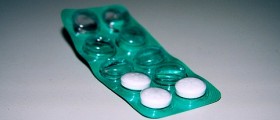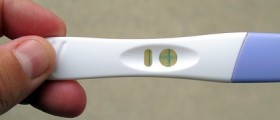
Most people take Aspirin when they have mild anti-inflammatory problems, headache or fever, but new studies have found some evidence that it can even help with the infertility troubles among females. Women who undergo fertility treatment now often receive Aspirin along with the mentioned treatment so that their chances of getting pregnant are increased. So you cay consult your endocrinologist about the possibilities of conducting this therapy and hope for the best.
Increasing Fertility
Like we have said, the Aspirin may have abilities to increase the fertility in women trying to conceive but who had miscarriages or spontaneous abortions in the past. High levels of antiphospholipid antibodies have been found among women who had spontaneous abortions and this situation makes the blood much thicker, thus the making the blood platelets stick to each other. This can create blood clots, which can seriously hamper the development or even kill the fetus. Blood clots can be developed somewhere around the placenta and this will hamper the supply of nutrients and oxygen to the baby. The blood clots are affected by the Aspirin because it thins the blood. The palates will become less sticky, which will allow proper flow of blood to the baby. Anticoagulant medication called Heparin is commonly given along with the Aspirin.
Studies
The effect of the Aspirin on the fertility of a woman has been a subject of many studies and one of them involved two groups of women who had multiple miscarriages in the past. One group took Aspirin while the other didn’t, and the results showed that pregnancy occurred in 45% of women on Aspirin. The group that didn’t take Aspirin showed only 28% success. Aspirin may be efficient in increasing the fertility in all women since it stimulates the ovaries so they release several eggs simultaneously. Also, women can have a healthier and thicker lining of the uterus by taking Aspirin because it can increase the flow of blood to the uterus.
Dose and Side Effects
Aspirin need to be taken in small dosages every day. The baby Aspirin has from 78 to 81 mg of the acetylsalicylic acid, but you should consult a doctor before you start using Aspirin for this purpose. Side effects of the Aspirin therapy are still unknown right now since they are being tested, but long-term use can cause inhibition of ovulation because it prevents follicles from releasing the eggs, thus preventing ovulation from occurring. So do not use Aspirin for a longer period of time. Women who are bleeding, have gastric inflammation or are allergic to Aspirin should not take it.



,-Or-Ibuprofen-Which-Over-The-Counter-Painkiller-Should-You-Choose_f_280x120.jpg)













Your thoughts on this
Loading...